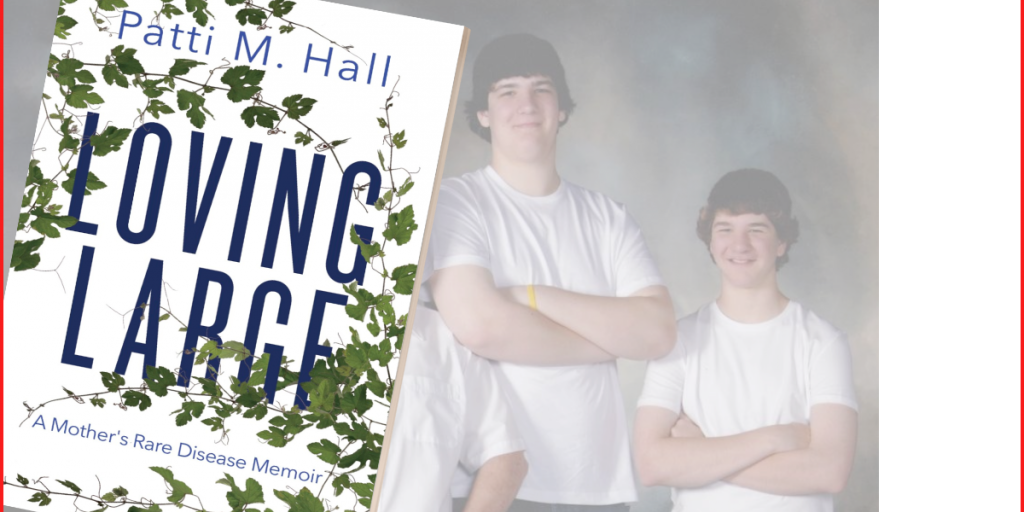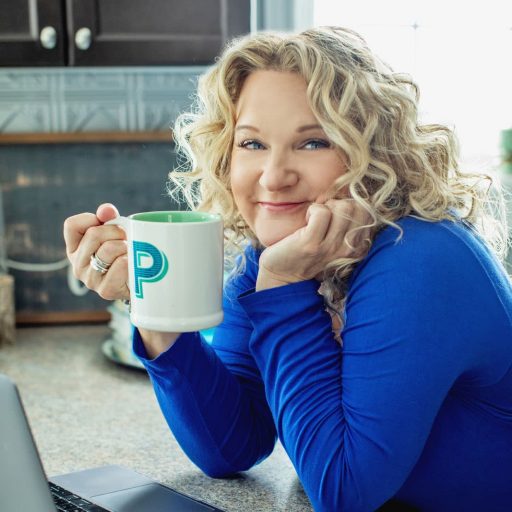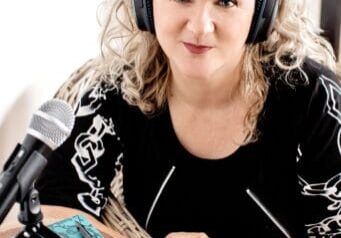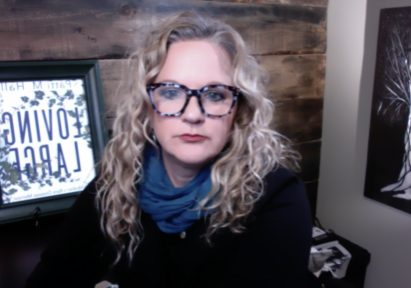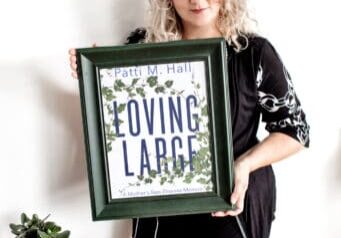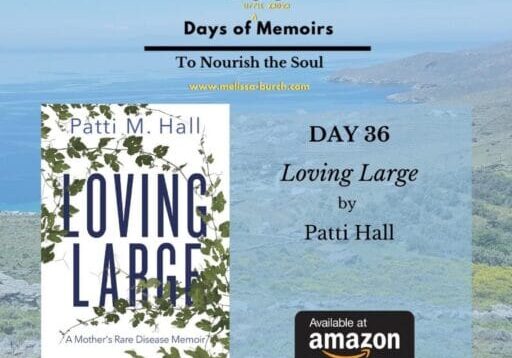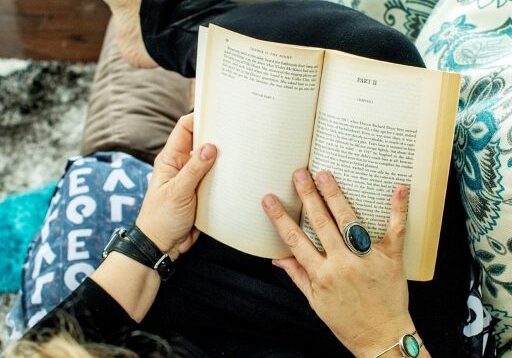by Patti M Hall
I had no doubt I’d adore my boys. I did relish the advice of the many folks who insisted upon telling me just how much I’d love them. They’d try synonyms for huge, attempting metaphors for that inexplicably enormous and all-consuming feeling. One person got it right by admitting to the impossibility of the task: “The sky is bluer.”
That is how motherhood began for me. My awareness of texture, color, temperature and noise was heightened. With postpartum depression, fear and uncertainty became terror and anxiety. Warm fuzzies became the most blissful moments of my life. I had an awareness of the miraculous with the appearance of my boys’ faces and little bodies, their well-formed parts and incredible, alert eyes.
A nightly habit of strolling through their rooms before I lay my own head down began the
first night of my eldest son’s life. He was premature, weak and a noisy sleeper, all which fuelled my para noid self-doubt that I would not be able to keep my newborn alive. I checked on him, a lot. I went from holding my face close to his nose and mouth to confirm he was
noid self-doubt that I would not be able to keep my newborn alive. I checked on him, a lot. I went from holding my face close to his nose and mouth to confirm he was
breathing, to crawling up to the side of te crib, below his eye level, just to listen to him.
When I was twenty-nine I learned I was pregnant again. I had promised Aaron that a sibling would come. I stood by the crib side each night of that pregnancy studying him in his sleep, whispering to him. “You’ll be one of two soon. You’ll never be alone.” I memorized Aaron’s toddler face in the shadows at night, as he slept with his hands splayed out on the mattress above his head.
My declaration that I would be a particular sort of mother started then. In the glow of the plastic dolphin nightlight, I promised to be fair and good and kind to he and his baby brother. Aaron’s face was my beacon of hope declaring that I could achieve this promise and hundreds of others, heard only by me.
When Justin arrived, it quickly became very clear what kind of mother I would not be: I was getting a little more realistic in my standard setting. I wanted my boys to derive confidence from knowing they were a celebration that never ended for me. I wanted them to know they were my business, they were my why.
This limitless love and well-honed intention could not have prepared us for a disaster as profound as chronic illness. Diagnosed with gigantism at sixteen years old, the source a large tumor on his pituitary gland that causes abnormally high levels of growth hormone, Aaron was aggressively treated with surgery, medication and radiation.
Sometime when he was seventeen and we were enjoying quieter months in his treatment plan, I was watching television with him one Saturday evening when I noticed he had dozed off. He was a really big, sloppy pile of teenager consuming the couch, all jeans, hoodie and ball cap, with a death grip on the remote. The profile was a stretched, puffed up evolution of his infant and toddler one. The disease had broadened and thickened his forehead, expanded his nose and cheeks, adjusted the position of his jaw and mouth.
As I studied his face in the flicker of the television light, neither that of a man nor a boy, I apologized in breaths, swallows and blinks that something out of my control was impacting his life in a way that could steal from him the quality life I had so hoped for.
The profound feeling of failure to keep him healthy and safe weighs on me still. I failed to keep my promise, even though I had become so much more than his mother because of the monster that is rare disease, by becoming advocate, lay medical expert, caregiver, sidekick and cheerleader.
This is what chronic illness does to a mother. This mother anyway.
In a phone call’s length, it robbed me of the ability to keep the greatest unspoken promise of my motherhood—to protect. No matter how fair and good and kind I managed to be in the face of everything—I have only been able to be the mother he needed. I hope I’ve been the mother he deserved.
this piece originally appeared on www.mamalode.com: want to view the post on www.mamalode.com?

